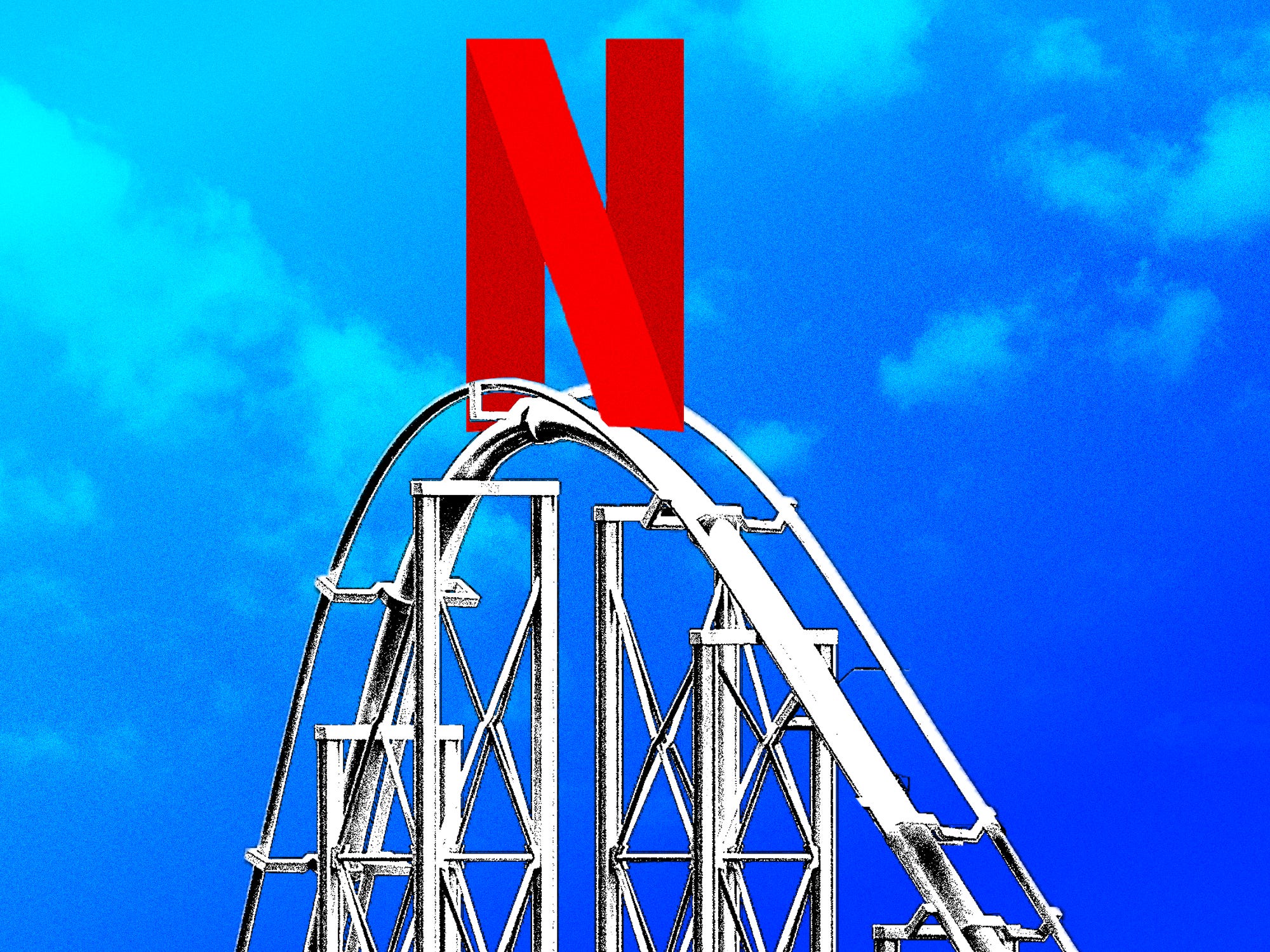
Getty Images; Tyler Le/BI
Netflix, the DVD-by-mail company that became a streaming company, is about to open two … I’m not sure what to call them. Let’s use Netflix’s term for the moment: “immersive experiences.”
Does that mean Netflix is going to become a theme park business?
Easy answer: Nope!
The new “Netflix Houses” coming online this year in the Dallas and Philadelphia areas — a third one is planned for Las Vegas in 2027 — are marketing programs for the service.
Albeit one where you, the consumer, can pay the company that’s trying to market to you, which is a little bit of a twist. Entrance to the venues is free, but once you’re inside, you’ll have the chance to pay for food, merch, and participate in some activities, which will include novelties like Netflix-themed mini-golf and arcade games.
Posting photos of your visit on social media and becoming an unpaid Netflix influencer? Very much encouraged.
This isn’t Netflix’s first foray into physical attractions: The company has been doing pop-ups around shows like “Bridgerton” and “Squid Games” for a few years. Which prompts investors to periodically wonder whether Netflix will take on Disney (and Comcast), and eventually build out a real theme park business.
Here’s where I dutifully point out that theme parks and cruises, etc., are a huge part of Disney’s business: In its 2024 fiscal year, its experiences unit generated $9.3 billion in operating income — more than Netflix’s entire profit of $8.7 billion in 2024.
And yes, just because Netflix isn’t building out a real theme parks business in 2025 doesn’t mean they won’t do it eventually. And if you squint, you can imagine the company taking the path it has taken in the past when it moves into a new business, whether that’s original content or gaming — tentative steps at first, then a lot more once things get going.
But if you assume Netflix would one day like to make a real commitment to the theme park business — Comcast’s newest Florida park cost a reported $7 billion alone — in order to diversify its revenue streams, I don’t think money will be the issue. I think the question will be: “Do we have intellectual property we can turn into rides and restaurants and cruise ships?”
Would a Netflix theme park ever happen?
That would have been a resounding “no” a few years ago, when Netflix had a smattering of original hits it made itself, and relied heavily on movies and shows owned by its Hollywood competitors.
Today, it’s more nuanced: Netflix definitely makes and owns shows lots of kids like, but it also makes lots of stuff. And some of it won’t lend itself to a theme park, no matter how hard you try.
There would be no takers for an “Adolescence” ride, no matter how much you love Netflix’s harrowing series about a British teenager accused of murder. (And many people did — it was the service’s most-watched show during the first half of this year.)
On the other hand: The most popular movie in US theaters last weekend was “KPop Demon Hunters” — a Netflix movie people had already seen at home, then left their houses so they could pay to see again.
A few more of those, and maybe a bona fide theme park seems more plausible than ever.
The post Why Netflix could one day get into the theme park business — and why it hasn’t so far appeared first on Business Insider.




